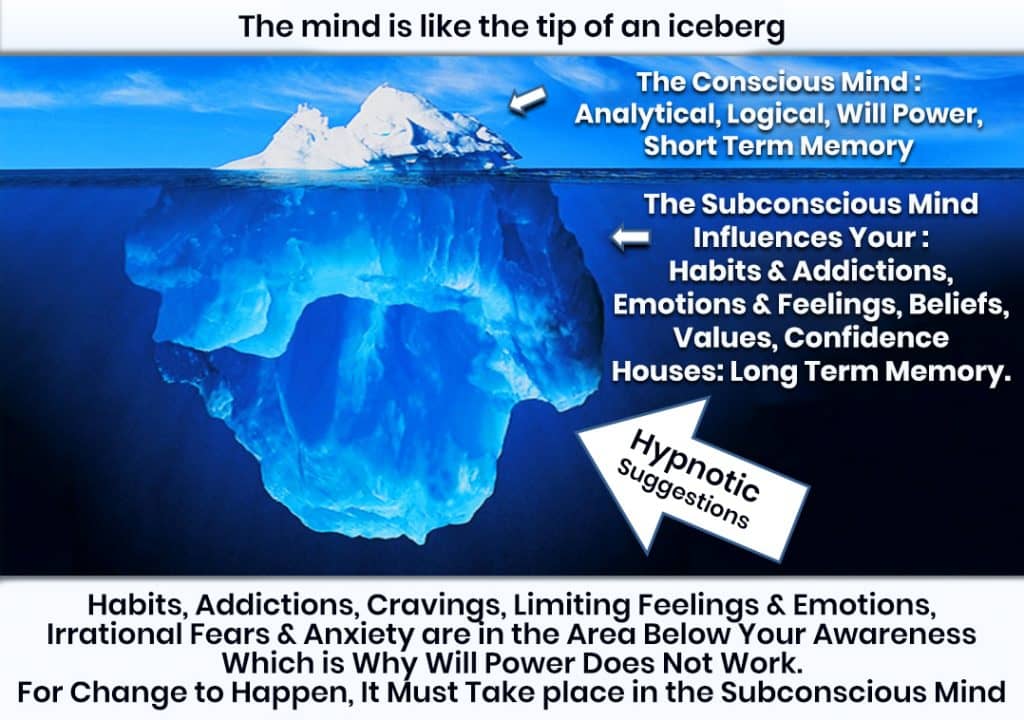Does Hypnotherapy Really Work? The Science Behind Rewiring the Subconscious
When people first hear about hypnotherapy, the most common question is: “Does hypnotherapy really work?” Some imagine stage tricks, swinging watches, or being put into a trance where they lose control. But clinical hypnotherapy is very different. Backed by neuroscience and modern psychology, it is a safe and evidence-based therapy that helps people rewire unhelpful thought patterns and behaviours by working directly with the subconscious mind.
At Neurohealth Wellness, our certified hypnotherapist, Katarina McNamara, uses proven techniques to help people overcome stress, anxiety, chronic pain, unwanted habits, and limiting beliefs. Let’s explore how it works and the science behind it.
What Is Hypnotherapy?
Hypnotherapy is a therapeutic approach that guides you into a deeply relaxed, focused state – often compared to daydreaming or meditation. In this state, the conscious mind becomes quieter, allowing access to the subconscious mind, where many of our automatic habits, beliefs, and emotional responses are stored.
Instead of “taking control,” hypnotherapy actually enhances focus and suggestibility. This makes it easier to shift unhelpful patterns and create lasting change.
The Science of Hypnotherapy
Far from being mystical, hypnotherapy has been studied in neuroscience and psychology for decades. Research shows:
- Brain imaging studies reveal that during hypnosis, the brain enters a state of increased connectivity between the prefrontal cortex (decision-making) and the insula (body awareness), allowing people to process and shift perceptions more effectively (Jensen et al., 2017).
- Pain studies show hypnotherapy can reduce pain by altering how the brain interprets sensory signals, making it a recognised tool for chronic pain management (Montgomery et al., 2000).
- Stress and anxiety research highlights that hypnotherapy lowers activity in the default mode network – the part of the brain involved in self-critical and ruminating thoughts (Hoeft et al., 2012).
In simple terms: hypnotherapy helps you change how your brain processes experiences, which is why it can lead to lasting improvements in both mental and physical wellbeing.
How Does It Work on the Subconscious Mind?
The subconscious mind influences up to 95% of our behaviours and responses. That’s why habits like smoking, negative self-talk, or emotional eating can feel so hard to change with willpower alone.
Through guided relaxation and targeted suggestions, hypnotherapy:
- Bypasses the critical conscious mind, making it easier to access the subconscious.
- Reframes old beliefs and responses, helping you let go of patterns that no longer serve you.
- Builds new neural pathways, strengthening healthier habits and more empowering ways of thinking.
This process is sometimes called neuroplasticity – the brain’s ability to change and rewire itself.
What Can Hypnotherapy Help With?
At Neurohealth Wellness, hypnotherapy is used to support:
- Stress and anxiety relief
- Improving sleep
- Chronic pain reduction
- Overcoming fears and phobias
- Weight management and body confidence
- Quitting smoking or breaking unwanted habits
- Boosting performance and motivation
- Supporting people through cancer treatment and chronic illness
Because it works with the subconscious, hypnotherapy doesn’t just address symptoms – it helps get to the root cause of unhelpful patterns.
Addressing Common Misconceptions
- “Will I lose control?” – No. You remain fully aware and in control the whole time. Hypnotherapy is a collaborative process, not mind control.
- “What if I can’t be hypnotised?” – Almost everyone can enter a hypnotic state. It feels much like guided meditation or deep focus.
- “Is there evidence?” – Yes. Clinical studies consistently show hypnotherapy is effective for pain, anxiety, habit change, and more.
Why Choose Neurohealth Wellness for Hypnotherapy?
At our Northern Beaches practice, we understand that mind and body are deeply connected. Our hypnotherapist, Katarina McNamara, combines professional training with personal experience of overcoming chronic illness, offering a compassionate and client-centred approach.
She tailors each session to your needs using the naturalistic techniques of Milton Erickson – designed to feel conversational, supportive, and empowering rather than scripted or forced.
Whether you’re seeking relief from stress, wanting to improve sleep, or hoping to break free from long-held patterns, hypnotherapy can provide a gentle but powerful path forward.
Take the Next Step
If you’ve ever wondered “Does hypnotherapy work?” – the answer is yes, when it’s evidence-based and tailored to your needs. By tapping into the subconscious mind, you can unlock new possibilities for healing, growth, and positive change.
📍 Visit us at Neurohealth Wellness, Allambie Heights (Northern Beaches of Sydney)
📞 Call us on (02) 9905 9099
📧 Email: info@neurohealthwellness.com.au
💻 Book online: www.neurohealthwellness.com.au/booking
References
- Hoeft, F., Gabrieli, J. D. E., Whitfield-Gabrieli, S., et al. (2012). Functional brain basis of hypnotizability. Archives of General Psychiatry, 69(10), 1064–1072.
- Jensen, M. P., Adachi, T., & Hakimian, S. (2017). Brain oscillations, hypnosis, and hypnotizability. American Journal of Clinical Hypnosis, 59(3), 262–279.
- Montgomery, G. H., DuHamel, K. N., & Redd, W. H. (2000). A meta-analysis of hypnotically induced analgesia: How effective is hypnosis? International Journal of Clinical and Experimental Hypnosis, 48(2), 138–153.
- Elkins, G. R., Barabasz, A. F., Council, J. R., & Spiegel, D. (2015). Advancing research and practice: The revised APA Division 30 definition of hypnosis. International Journal of Clinical and Experimental Hypnosis, 63(1), 1–9.
- Milling, L. S., Valentine, K. E., McCarley, H. S., & LoStimolo, L. M. (2018). A meta-analysis of hypnotic interventions for depression symptoms: High efficacy, moderate evidence. Journal of Affective Disorders, 232, 65–76.

